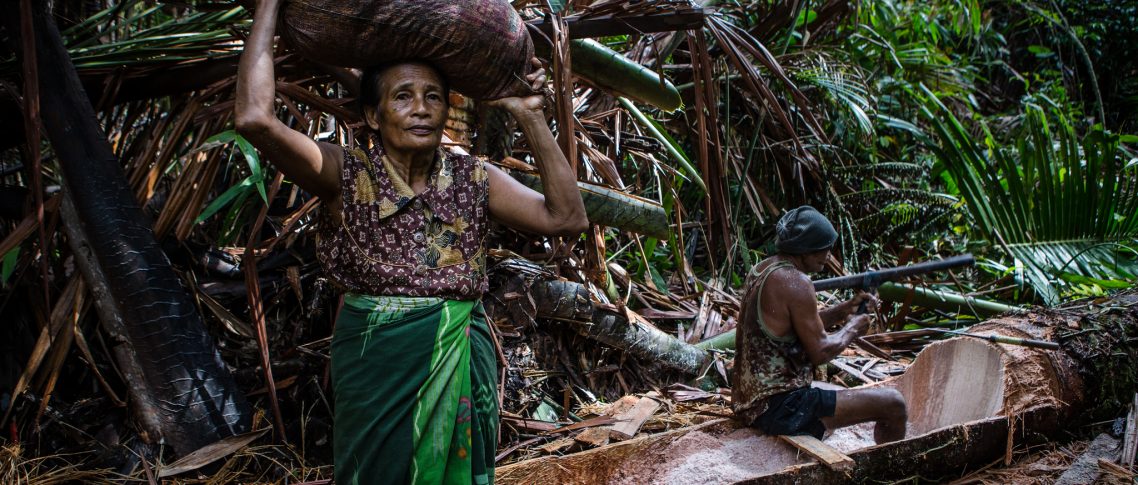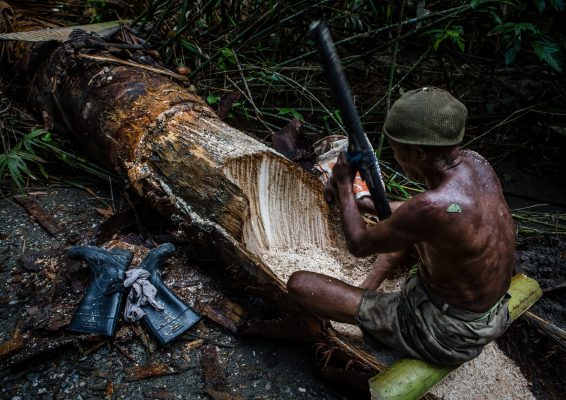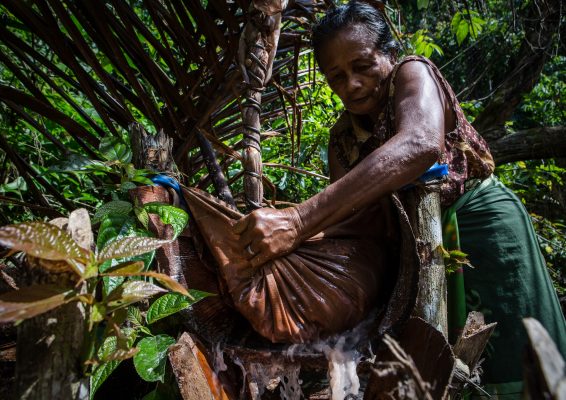This article is the third in a three-part series reporting from the village of Honitetu in Maluku, Indonesia.
On the banks of the Tuba river, Silas Matoke and Yordana Yawate walk barefoot into the forest that has sustained their lives.
“For us, the forest is a place to forage,” Matoke says. “And a vegetable garden to fulfill our daily needs.”
Since they were children, the elderly pair have been provided for by the forest – a source of fruit, vegetables, game, spices, and wood for timber and cooking. Through their hard work, the forest also provides sago, the staple food of their island in Maluku, Indonesia.
But as times change, it’s becoming harder to live off the forest, and to make a living from what they harvest there.
“We can harvest enough sago for ourselves to eat. But selling it is difficult,” Matoke says. “We have a hard life.”



CHANGING TIMES
Recent changes to national law, recognizing full rights of indigenous communities over their forests, have not yet reached this corner of far-eastern Indonesia.
As it is across most of the country, all forests here are categorized as either state or private forest. A reform-era law allows for partial rights for communities to use and manage forests, but obtaining full recognition is still a struggle.
Meanwhile, full rights are more easily obtained by private companies. The development of private plantations often leads to a loss of access for communities to their forests, and puts further pressure on remaining forest to support their lives and livelihoods.
With mostly local and provincial authorities calling the shots, indigenous forest users like Matoke and Yawate are left with insecure tenure over the land that sustains them.
“Now they say we are not allowed to use the forest as a garden,” Matoke says.
“The forestry agency has begun replanting in this area,” Yawate adds. “But there is no direct support available for us.”